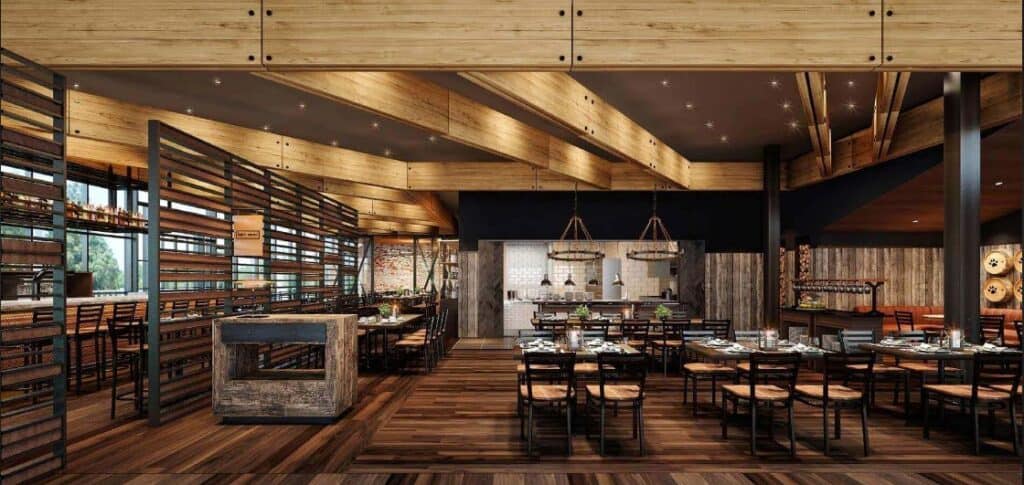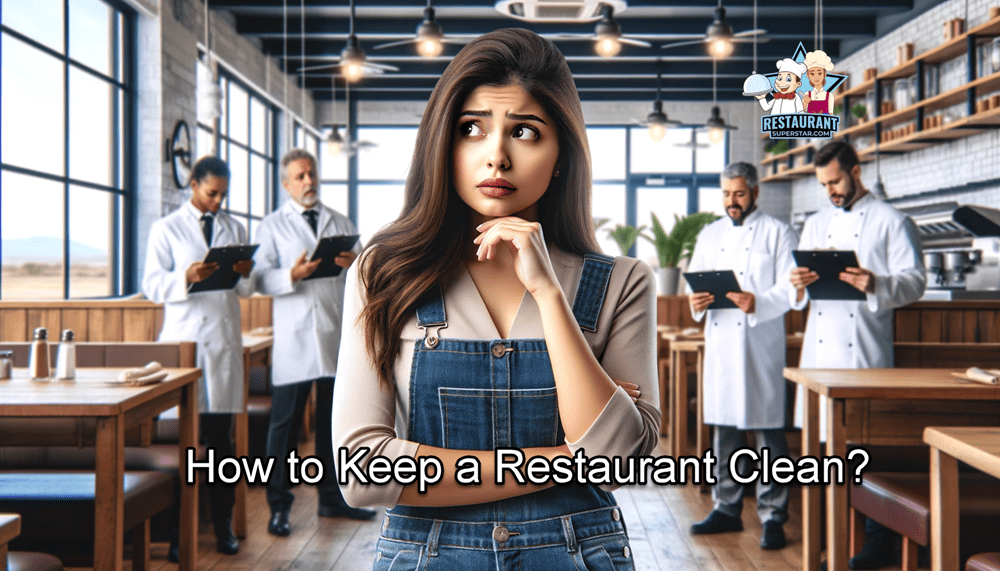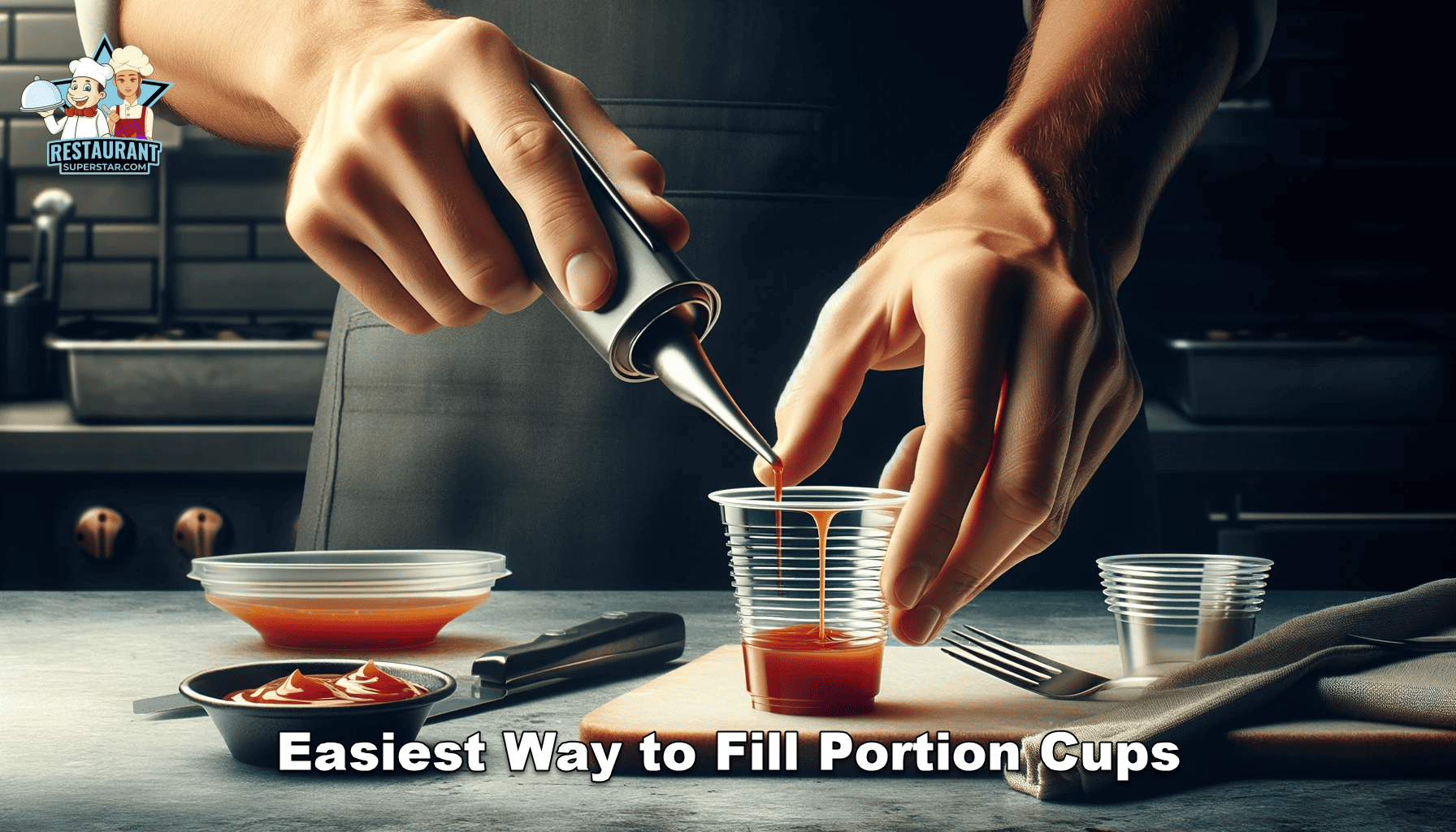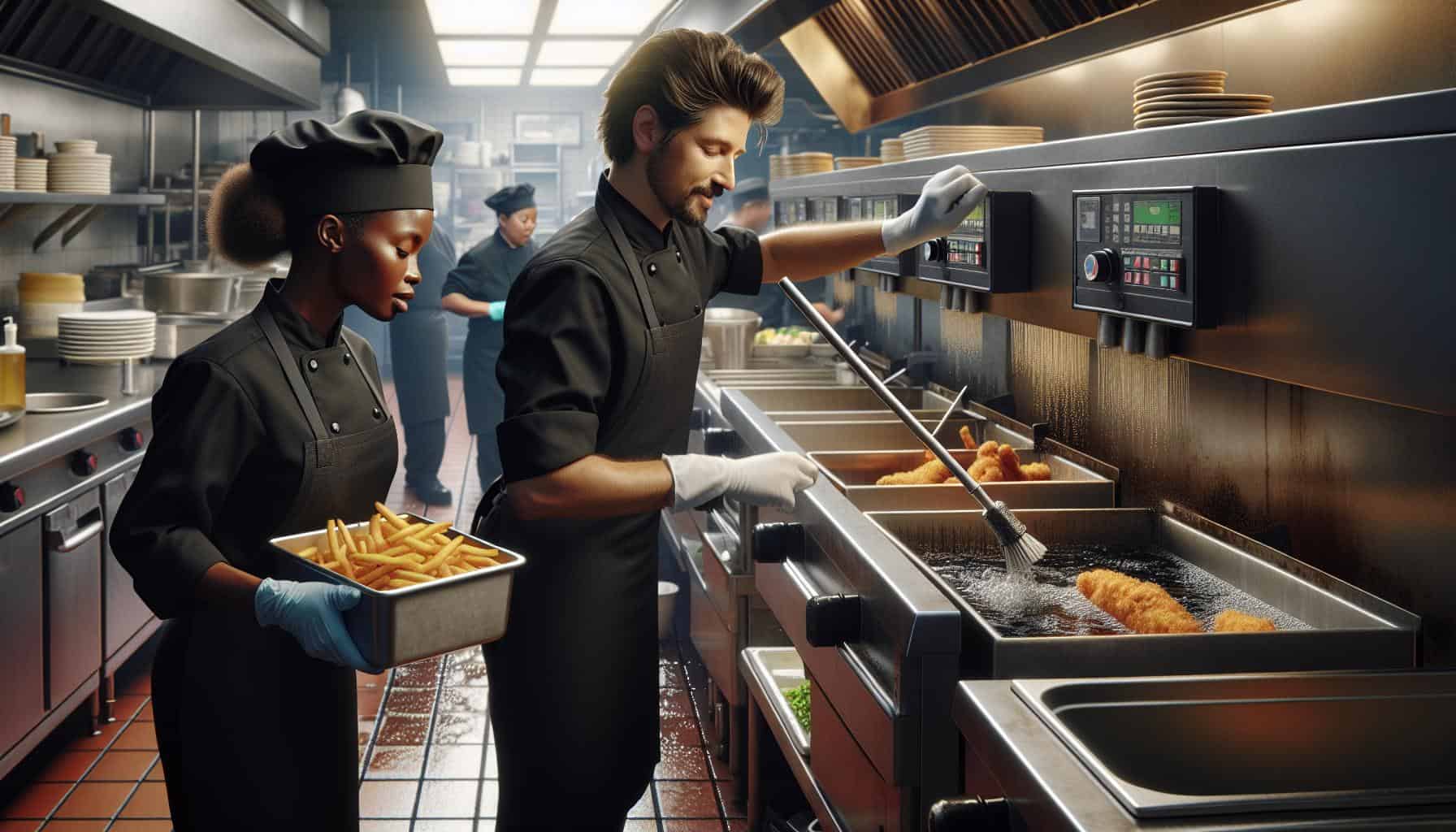What Is the Best Flooring for a Restaurant?

Hello and welcome! So you want to know what is the best flooring for a restaurant? In this article we will answer that question in great detail. You have a great variety of options for picking your restaurant’s flooring and we will cover all of them here. One of the most crucial aspects of your restaurant is its decor, which establishes the mood. And flooring is a big part of that. So let’s get started …
What Is the Best Flooring for a Restaurant? When it comes to long-term durability, polished concrete is the best option. It’s durable, easy to maintain, and it can withstand stains and impact damage. Concrete is an excellent material choice for your restaurant’s heavy traffic sections.
Popular Restaurant Flooring Options
When choosing the flooring for your restaurant, you have many options. You can go with a single seamless design or a mix of materials. Here are some options to help you begin planning your flooring:
- Concrete
- Stone
- Carpet
- Vinyl
- Rubber
- Epoxy
- Hardwood
- Tile
- Laminate
- Cork
- Rubber
What Kinds of Flooring Are Ideal for Restaurants?
Various kinds of flooring serve different purposes, so it’s important to choose wisely. Your materials should be sturdy, won’t easily scratch or break, and withstand frequent use.
The restaurant industry has several challenges when it comes to flooring, but the following options represent some of the finest solutions:
- Cork
- Resin
- Vinyl
- Wood
- Carpet
- Porcelain and ceramic tile
- Concrete
What Is the Best Flooring for a Restaurant Kitchen?
While authentic stone and brick are employed in select specialized contexts, ceramic tile and vinyl flooring are the two most common flooring choices for professional kitchens.
Ceramic is finished with a glaze made of melted glass that covers the surface and shields it from water, stains, and general wear and tear. The vinyl flooring offers great design adaptability and is tough and resistant to heat, water, and stains.
Top Five Flooring Choices
The floor of your workspace is one of the most important particulars you need to manage effectively. Selecting the finest flooring for a restaurant kitchen can be challenging because so many different flooring systems are available.
Ceramic Tile Flooring
Ceramic tile flooring is an excellent alternative. Its main qualities are its longevity, timeless look, and reasonably modest installation cost. Daily cleaning is effortless, but using chemical-laden cleaning products or doing so frequently weakens the grout lines over time, making them more prone to storing water and microbial growth.
JetRock Epoxy Flooring
It deploys rapidly (overnight), reduces waste, depending on use, and lasts up to 10 or 15 years. It’s also spotless and safe as well as waterproof. Lastly, it is an excellent option for hotlines and chiller boxes since it can endure the chemicals, temperature extremes, and severe wear in standard kitchen flooring.
Concrete Flooring
Concrete is a different common choice. Its hard, smooth, and continuous surface make it resistant to heat and the vast majority of impacts, increasing its durability significantly. If adequately managed, polished concrete may make a beautiful kitchen floor lasting up to ten years.
Vinyl Flooring
While it isn’t typically advised as ideal for a restaurant kitchen, vinyl flooring is still an alternative. Although installation costs are usually comparable to epoxy flooring systems, operational costs are often significant, particularly if moisture or dirt gets into seams. When wet, it can be incredibly slick. The fact that implementation usually takes two to three days is another disadvantage.
Natural Stone Tile
A further choice for commercial kitchen flooring is natural stone tile, mainly where the workspace is visible to clients and aesthetics are essential. Similar to ceramic and quarry tile, it is solid and hard.
Consult with a Flooring Professional
Each restaurant kitchen has a unique set of necessities and nice-to-haves, so no solution will work for everyone. The most acceptable strategy is to touch and explore the various possibilities and discuss your demands and worries with a flooring expert. It helps to take time when picking your choice because, preferably, it will yield a return on investment for years to come.
Flooring Options for Your Restaurant
When choosing the flooring for your restaurant, you have a wide range of options. You can go with a single seamless design or a mix of materials. Here are some options to help you begin planning your flooring.
Concrete
Polished concrete is a fantastic option and highly durable and straightforward to manage. Additionally, it is resistant to stains and permanent deformation. Because of this, concrete is an excellent material choice for your restaurant’s heavy traffic sections.
Stone
Suppose you need a firm surface that works well in every section of your restaurant. In that case, stone is an excellent material for both upscale looks and long-lasting use. It withstands heavy traffic, drops, and spills effectively.
Vinyl
Due to its low cost, vinyl is a standard option for flooring. It is a fantastic option for restaurant settings because it is sturdy and low-maintenance. Vinyl flooring absorbs sound, lessens echo, and offers a cushioned, secure platform for walking.
Epoxy
An existing concrete floor can be covered with epoxy, a durable floor coating. Due to its high durability and ease of maintenance, it is an excellent choice for big restaurant spaces. It is mold and mildew resistant and water-resistant.
Laminate
Laminate is a fantastic material to withstand the daily wear and tear your restaurant experiences. For high-traffic locations, its resin covering makes it a scratch-resistant and simple-to-clean option. Additionally, it will be resistant to spillage, which is unavoidable.
Cork
Cork might be the ideal material for your flooring. In congested areas, its ability to muffle sound is helpful. And it makes a statement with its distinctive appearance.
Hardwood
Because of its enduring beauty and durability, hardwood flooring is a classic option. It is adaptable to any design aesthetic and reasonably simple to maintain. To alter the appearance, it can also be polished and re-stained.
Tile
For a good reason, tile is a popular choice for commercial areas. It resists water and requires little upkeep. It is a fantastic material choice for various places due to its strength and longevity. It’s not just an excellent option for dining rooms; it also looks great in kitchens and bathrooms.
Choosing Restaurant Kitchen Flooring Differently Than Dining Room Flooring, Lobby Flooring, etc.
Assess all regions of the venue while deciding which cover to use. To assist you in maintaining the smooth operation of your restaurant while adhering to safety regulations and fostering a welcoming environment.
This flooring must withstand constant foot traffic, spillage, and cartwheeling. To prevent customers from slipping, they must offer a grip. They must be alluring and attractive. They must aid in light reflection to keep the dining room from being too dark.
A Comparison of Hardwood and LVP
Wood is elegant. Timeless. Customers who purchase hardwood flooring should feel comfortable and warm. Luxury Vinyl Plank is the sole option to consider in most restaurant applications. A ceramic tile is an option, but they will be slick unless you purchase unique tiles, and even non-slip shoes may fail on them.
Luxury Vinyl Plank Wins
The actual winner, in our opinion, is the premium vinyl plank. LVP is impermeable. Suppose the vinyl plank product has a wear layer 12 mil or 20 mils thick overall. The floor will be sturdy and come with a hefty commercial warranty. LVP is designed to withstand misuse. Many people enjoy the romantic vibe that hardwood has to offer. However, hardwood loses the war in terms of price per square foot.
You should be familiar with three main parts: the core, the wear layer, and the balancing layer.
You must know three aspects to determine whether a vinyl plank product is good. Most manufacturers wish to keep this knowledge a secret or, at the very least, avoid mentioning it during a sales pitch. You can tell because most brick-and-mortar establishments and websites have stunning room scenes on display.
Core Materials for LVP: WPC vs. SPCC
The timing is perfect for a heist on this theme. WPC flooring has received serious investment from factories and major merchants, including HD. They also prefer to use words like “cozy” and “calm” in conversation. Don’t give in to such a trap. True, WPCs have become a relic of the past. Why did they fail? In short, they leave dents. Badly. Even more so. A soft core insulation system cannot compete with the longevity of an SPC floor, despite its superior thermal efficiency and relative silence.
Wear Layers
Your floor’s longevity depends heavily on the material and thickness of the wear layer. The thicker the better. Although flooring is typically measured in mil (one-thousandth of an inch), we will not even consider anything less than 12 mil for your application. Even in the comfort of my own house, I wouldn’t use a ply thinner than 12. You can get a high-quality 12 mil from COREtec for $1.89 per 1,000 square feet, so even if you get a wonderful deal on an 8 mil at $1.49 or such, you’re still only saving $300.
What About Glue Down Vinyl?
A glue-down LVP works better in some instances. Glue-down flooring used to be much more affordable, but a glue-down SPC today costs $4 or more, not including adhesive. Additionally, when using a quiet cork underlayment, the installer must first glue the cork to the floor before adhering to the LVP on top of it.
FAQS – What Is the Best Flooring for a Restaurant?
What Type of Floor Is Best for a Restaurant?
Concrete. It is highly durable and simple to maintain, and Additionally, it is resistant to stains and permanent deformation. Because of this, concrete is an excellent material choice for your restaurant’s heavy traffic sections.
What Is the Most Durable Type of Flooring?
Some of the least-maintained and longest-lasting flooring solutions include ceramic and porcelain tiles. Water-resistant tile flooring is ideal for bathrooms, kitchens, and laundry rooms—areas where spills are frequently encountered.
What Type of Flooring Is Best for a bar?
Laminate. The advantages of laminate flooring include its durability and toughness. The surface is flat, smooth, and resistant to wear, stains, and scratches. One of its many beautiful advantages for a bar or restaurant is resists fading.
Is Hardwood Flooring Good for Restaurants?
Solid hardwood flooring can endure heavy foot traffic. Thanks to this functionality, it can be used in your restaurant’s halls and dining rooms. The best hardwoods to use are wenge, cumaru, and oak.
What is the best non-slip kitchen flooring?
A vinyl floor. Vinyl flooring is among the most excellent solutions for preventing slipping, and some goods are made expressly to avoid slipping. The upkeep of vinyl flooring is also quite simple, and it is not water-damaged or stain-resistant.
Which Tiles Are Best for Restaurants?
A café or restaurant is regarded as a high-traffic area because of the daily foot traffic of hundreds of patrons. The most excellent porcelain tiles are full-premium speckled or colored-body tiles. Food and beverage spills provide a persistent concern, necessitating the use of high-density, easily-cleaned floor types.
Is Laminate Flooring Good for Commercial Use?
There is no doubt that laminate flooring can be employed in business settings. Laminate flooring is quite popular as commercial flooring because it needs little upkeep. It can be manufactured to endure the high activity typical of commercial spaces.
How Do You Waterproof a Commercial Kitchen Floor?
A non-porous, waterproof covering provided by high-quality epoxy prevents dirt and debris from building up between floor crevasses and cracks. Your kitchen would be spotless with just a few moist mop swipes over the floor.
Which Is Best for Flooring Tiles or Marble?
Marble is frequently a superior option because marble is less likely to be scratched or soiled than tile. Since this is a natural substance, its color variance will never be as comprehensive as tile’s.
Can You Use Tiles in a Commercial Kitchen?
Yes. One of the most popular materials for commercial kitchen flooring is tile. It is a very affordable flooring option that is incredibly strong, stain-resistant, and easy to maintain.
What Qualities Does Floor Covering Used in Kitchen and Dining Areas Require?
A laminate of superior quality is durable and straightforward to maintain clean. Even if it is water-resistant, getting a variant with a water-repellent coating makes sense if you are worried about spills in the kitchen.
What Should Be on the Walls of a Commercial Kitchen?
A metal stud wall should be covered with a water-resistant gypsum board, also known as “green board,” because of its color when building restaurant walls. A green board is preferred given its moisture protection in moist locations like kitchen prep areas.
Is Cork Flooring Good for Restaurants?
Cork flooring is low maintenance and soundproof. They provide a padded, supple surface for walking. This kind of flooring provides a good deal of comfort for kitchen employees. One of the best cork flooring features is the ability to be polished as needed for a new look.
What Happens If Cork Flooring Gets Wet?
Most cork floors have a polyurethane or acrylic finish applied to the surface. While these are highly resilient and long-lasting when subjected to light foot activity and routine moist cleaning, they will lose adhesion if submerged in water for an extended time.
Do You Need Underlay for Cork Flooring?
Underlayment is not required for Forna cork flooring. When erected on concrete, it merely needs a vapor barrier in the form of plastic sheeting. A vapor barrier shouldn’t be used when flooring on plywood or other wood-based substrates.
Does Cork Flooring Scratch Easily?
Cork flooring is prone to damage from cat and dog nails. Pets will inevitably harm a cork floor, but keeping their nails short can help. A hefty appliance or furniture may occasionally leave lasting divots in the fabric.
How Long Do Cork Floors Last?
Cork flooring has a lifespan of at least 40 years when maintained properly. Healthy, and cork has a built-in resistance to termites, mold, and mildew.
How Much Does Cork Flooring Cost?
Cork flooring planks or tiles can cost anywhere between $2 and $12 per square foot, depending on the product’s thickness, cork quality, and finish grade. Quality configuration from a pro costs roughly $2 per square foot, which is not prohibitively expensive.
What Every Restaurant Floor Plan Needs to Have
Before granting a restaurant permit to build a new enterprise, several states require you to submit a floor plan as part of your restaurant’s business plan. You must approve a restaurant floor plan before a single hammer is lifted or a sink is plumbed. A floor layout for a restaurant must provide the following:
- An emergency exits
- Windows
- Square footage
- Waiting room
- Doors
- Lavatories
- The restaurant’s backroom or employee area
- Outdoor seating
- Doorway
- Restrooms
- The cooking area, which is the kitchen
- Chairs and table
- Kitchen accessories such as stoves, refrigerators, and other major appliances
- Your payment and restaurant POS (point-of-sale) system
Conclusion
This article can help you choose the best concrete stain and design to improve the looks of your restaurant and ensure your floors can withstand the harsh daily wear and tear that many patrons bring.
This is true whether you’re planning to install concrete flooring in your restaurant or want to give your existing concrete a professional concrete staining that suit your taste.
Jeff Smith is a Restaurant Consultant with over 20 years of hospitality experience ranging from server to owner and general manager. He focuses on Restaurant POS technology as well as restaurant marketing. Make sure to check out our world famous restaurant resources page for a comprehensive offering of hand picked resources and tools to help your business. You can also check out some of our other restaurant business articles.



